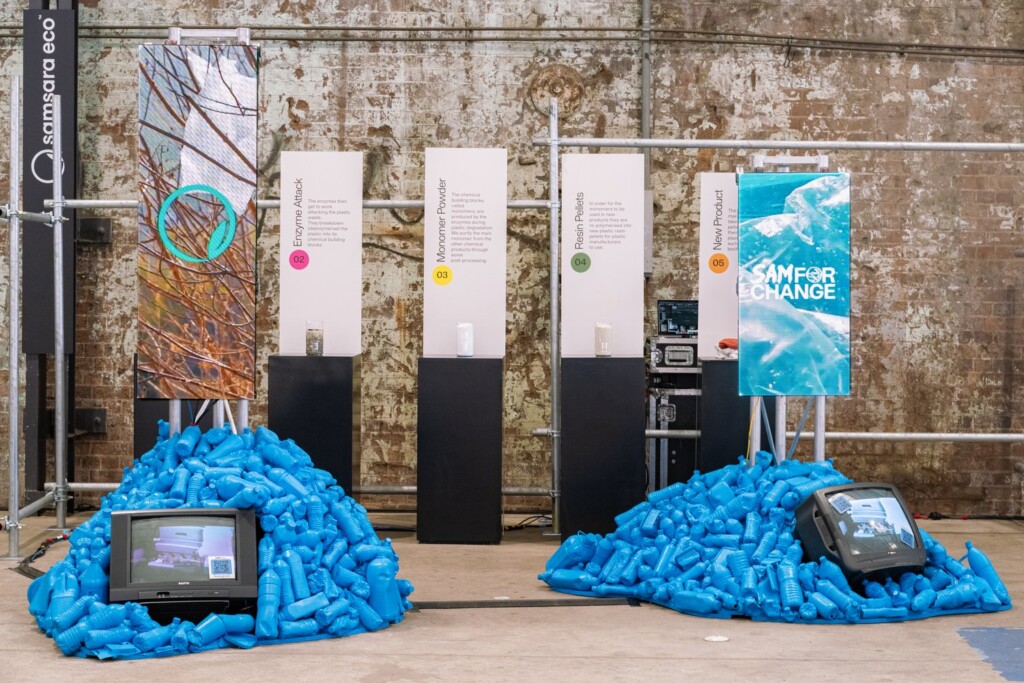
Climate Repair Through Infinite Recycling
Notice: Undefined index: options in /home/xs999583/sustainaseed.net/public_html/db.sustainaseed.net/wp-content/themes/dlist/inc/directorist-support.php on line 318
Notice: Trying to access array offset on value of type null in /home/xs999583/sustainaseed.net/public_html/db.sustainaseed.net/wp-content/themes/dlist/inc/directorist-support.php on line 318
Notice: Trying to access array offset on value of type null in /home/xs999583/sustainaseed.net/public_html/db.sustainaseed.net/wp-content/themes/dlist/inc/directorist-support.php on line 318
What we do
The earth has 10 billion tons of plastics waste. It’s time we start using it.
We had no way to resolve this disconnect.
Until now.
The Samsara Eco Solution
-

TRULY CIRCULAR AND INFINITE
Through our unique approach to recycling, Samsara Eco can re-manufacture new plastics from plastics waste, infinite times over. Plastics reaching their end of life will never be considered ‘waste’ again.
Our technology means we can decouple fossil fuels from plastics manufacturing, by delivering new plastics comprised of 100% recycled material (no virgin plastics supplementation needed).
The result is truly circular!
-

NO HIDDEN CLIMATE DAMAGE
Our technology has a low carbon footprint and no high temperature requirements.
That means we can perform infinite recycling from waste without harming the environment.
At Samsara Eco we are committed to accountability, and transparency, every step of the way.
-

PREMIUM PRODUCT
Unlike traditional recycling, our technology results in recycled plastics with virgin plastic quality, no matter how many times they are recycled.
Our premium recycled plastic can be used within existing cross-sector supply chains.
Company's story
Recycling based on plastic-degrading capabilities found in nature.
Samsara Eco uses enzymes which can attack complex plastics (polymers), reverting them back to their original chemical building blocks (monomers).
This is what makes our technology infinite:
by reverting complex polymers into simple monomers, we can make new, virgin-grade plastics without ever needing fossil fuels again. A truly circular process.
Our Unique Technology
Unlike traditional, curb side recycling, our technology can handle hard-to-recycle plastics, contaminated plastics, mixed plastics, and plastics containing additives (like colours).
The resulting high-quality monomers can make brand new plastics. This is a huge problem with traditional recycling, which generates low-quality recycled plastics requiring virgin-plastic supplementation.
And so, we’d like to mention our powerful plastic-degrading collaborators here. These tiny, microscopic organisms are our non-human collaborators.
Without them, we wouldn’t be able to do what we do.
General Information
Gallery


